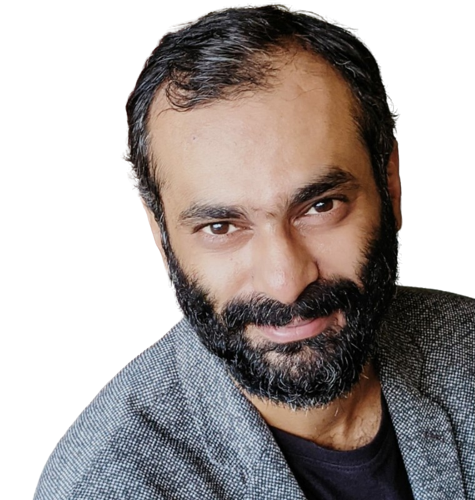<p>The current state of the world sees a collaborative effort to address the impacts of climate change, wherein the 17 sustainable development goals (SDGs) outlined by the United Nations serve as a guide for governmental initiatives, corporate endeavors, and philanthropic undertakings.</p><p><img src="https://kradminasset.s3.ap-south-1.amazonaws.com/KR+Blogs/Philanthropy+Thumbnail.png"></p><p class="bbox"><em>Renewable energy, notably solar energy, is crucial in achieving the SDGs. It can offer sustainable and clean energy for all while contributing to economic advancement.</em></p><p>And with the <a href="https://www.eia.gov/todayinenergy/detail.php?id=32912" target="_blank" rel="noopener">energy and electricity demands worldwide set to increase by 28% by 2040</a>, <strong style="color: #3598db;">we no longer have the option to look at renewable energy as an alternative energy source or overlook its importance for sustainable development.</strong></p><h2><span style="font-size: 14pt;">Advantages of Solar Energy in Sustainable Development</span></h2><p>Solar energy has been utilized as a clean power source for a considerable period. In addition to its substantial environmental advantages, renewable energy has several economic benefits. Some of the most notable advantages of solar energy when it comes to sustainable development include:</p><ul><li style="list-style-type: none;"><ul><li><p><strong>Reducing Carbon Emissions</strong></p></li></ul></li></ul><p>The primary benefit of solar energy is its positive impact on the environment, which is achieved by lowering air pollution and carbon emissions associated with solar-powered operations. As solar energy has the potential to supplant the demand for non-renewable energy sources, it serves as a sustainable substitute for traditional fossil fuels.</p><ul><li style="list-style-type: none;"><ul><li><strong>Promoting Energy Independence and Security </strong> </li></ul></li></ul><p>Although solar energy is intermittent, its availability globally enables every nation or region to harness its potential as an energy producer. This leads to enhanced energy security and autonomy, particularly in developing countries that may not have access to fossil fuels or other established energy sources. Furthermore, because solar energy requires minimal infrastructure, merely installing solar panels on existing individual homes can suffice to free them from dependence on the central power grid.</p><ul><li style="list-style-type: none;"><ul><li><strong>Increasing Access to Electricity</strong></li></ul></li></ul><p>Energy independence enables better access to electricity, particularly in the most remote locations, such as rural areas where traditional energy infrastructure has been inadequate. Solar energy can power even the most isolated villages, linking them to the world and providing opportunities for learning and progress.</p><ul><li style="list-style-type: none;"><ul><li><strong>Promoting Employment and Advancing Economic Growth</strong></li></ul></li></ul><p>Solar energy can bolster economic development directly by creating new employment prospects that are comparatively more stable and safer than other energy sources. Moreover, energy accessibility and security can stimulate other economic endeavors that diminish the disparity between the affluent and underprivileged and facilitate sustainable development.</p><h2><span style="font-size: 14pt;">Challenges to Solar Energy Adoption in Developing Countries</span></h2><p>Despite its numerous benefits as a renewable energy source, adopting solar energy as a source of energy and electricity is fraught with challenges, especially in developing countries. Some of the common obstacles to solar energy adoption in developing countries include:</p><ul><li style="list-style-type: none;"><ul><li><strong>Lack of Financing Options</strong></li></ul></li></ul><p>Solar panels and solar energy plants require a significant up-front investment for infrastructure, especially for plants that can power an interconnected grid. However, lack of access to finance with reasonable terms makes an upfront investment in solar energy unaffordable.</p><ul><li style="list-style-type: none;"><ul><li><strong>Lack of Awareness</strong></li></ul></li></ul><p>Individuals, particularly policymakers, are not fully cognizant of the potential of solar energy and continue to depend on traditional energy sources, including fossil fuels. This absence of awareness presents a significant obstacle to the widespread adoption of solar energy in developing nations.</p><ul><li style="list-style-type: none;"><ul><li><strong>Political and Regulatory Barriers</strong></li></ul></li></ul><p>In many developing nations, political instability and unfavorable macroeconomic conditions are prevalent. These factors, combined with inadequate regulatory oversight and the possibility of corruption, dissuade philanthropic organizations from investing in solar and other renewable energy ventures.</p><h2><span style="font-size: 14pt;">Philanthropic Organizations Leading the Charge in Solar Energy</span></h2><p class="bbox"><em>Achieving sustainable growth and development in renewable energy within developing countries requires more than just government efforts. It necessitates partnerships between the public, private, and philanthropic sectors to make the adoption of solar energy a reality in these nations.</em></p><p><a href="https://www.weforum.org/agenda/2023/01/why-philanthropy-is-a-catalyst-for-protecting-our-planet-davos-2023/" target="_blank" rel="noopener">The World Economic Forum has set a target to unlock $3 trillion in funding</a> with the help of PPPs to help developing countries reach net zero by 2050. Philanthropic organizations like Bloomberg Philanthropies are putting in millions of dollars through <a href="https://www.knowledgeridge.com/Blog/How-to-Make-a-Difference-Through-Socially-Responsible-Investing" target="_blank" rel="noopener">socially responsible investing</a> in creating programs and partnerships in developing countries to promote sustainable energy.</p><p>Countries like Morocco and India are moving full steam ahead to proactively develop renewable energy projects with the help of the <a href="https://blogs.worldbank.org/energy/renewables-are-key-green-secure-affordable-energy" target="_blank" rel="noopener">World Bank's $8 billion investment</a> in clean energy and philanthropic organizations’ <a href="https://blogs.worldbank.org/energy/renewables-are-key-green-secure-affordable-energy" target="_blank" rel="noopener">$20 billion investment in renewable energy generation</a>. And as a result, in Morocco, renewable energy projects constitute almost 40% of all energy infrastructure, including the world's largest concentrated solar power plant. <a href="https://www.investindia.gov.in/sector/renewable-energy" target="_blank" rel="noopener">India has achieved 9.83% year-on-year growth in renewable energy</a> addition.</p><h2><span style="font-size: 14pt;"> The Role of Government in Promoting Solar Energy</span></h2><p><a href="https://www.knowledgeridge.com/c/ExpertsViewsDetails/280" target="_blank" rel="noopener">Renewable energy projects are leading the sustainable development investments</a> from corporate and philanthropic organizations. However, without proper regulatory support from government authorities, these projects cannot succeed.</p><p><strong style="color: #3598db;">Creating regulatory frameworks and policies that alleviate the obstacles to adopting renewable energy sources, including solar energy, is a significant step that governments can take.</strong> This can look like establishing energy (or emission targets), implementing awareness initiatives and addressing all public concerns, and establishing market instruments to de-risk green energy investments.</p><p>Some such initiatives include the <a href="https://www.energy.gov/eere/solar/local-government-guide-solar-deployment" target="_blank" rel="noopener">US Department of Energy's community guidebook</a> and the US Environmental Protection Agency's public benefits funds for renewable energy, output-based environmental regulations, or financial incentives. Such initiatives not only create awareness about the importance of sustainable development and solar energy but also incentivize corporate and philanthropic organizations to make sustainable and responsible investments.</p><h2><span style="font-size: 14pt;">How Knowledge Ridge Can Help</span></h2><p><strong style="color: #3598db;">Lack of awareness and technical know-how is one of the biggest challenges when it comes to solar energy adoption.</strong> However, gathering appropriate guidance on policy decisions and implementing renewable energy initiatives can surmount this obstacle and enhance the efficiency of the process.</p><p>Knowledge Ridge is an <a href="https://www.knowledgeridge.com" target="_blank" rel="noopener">expert network firm</a> that connects organizations with highly experienced experts in various fields, including philanthropy and renewable energy.</p><p class="bbox"><em>With over 450,000 experts across 40+ countries, we can help you understand and respond to the ever-changing market dynamics, offer real-time actionable insights, and add value to your sustainable investment choices.</em></p><p>Our <a href="https://www.knowledgeridge.com/Knowledge-RidgeExperts" target="_blank" rel="noopener">custom-vetted experts</a> have extensive experience in philanthropy, renewable energy, and related fields and can provide organizations with valuable insights, strategies, and recommendations to maximize their impact. They can assist in developing comprehensive sustainability plans, conducting feasibility studies, identifying funding opportunities, and implementing successful initiatives that align with an organization's goals and values.</p><p><strong style="color: #3598db;">With Knowledge Ridge, organizations can tap into a vast network of experienced professionals passionate about driving change and positively impacting the world.</strong> Whether an organization wants to contribute to philanthropic efforts, advance renewable energy initiatives, or address complex environmental challenges, we can help connect them with the right experts to achieve their goals. We also offer <a href="https://www.knowledgeridge.com/Expert-Network-Services/Executive-Board-Placements" target="_blank" rel="noopener">executive and board placement services</a> to facilitate long-term operations and provide ongoing consultation in sustainable development.</p><p><a href="https://www.knowledgeridge.com/Knowledge-Ridge-Contact" target="_blank" rel="noopener">Get in touch with us </a>to effectively drive your sustainable development investments to make a real impact on the UN’s 17 SDGs.</p><h3><span style="font-size: 14pt;">Frequently Asked Questions</span></h3><h3><span style="font-size: 12pt;"><strong>What do philanthropic organizations do?</strong></span></h3><p>Although philanthropic organizations may adopt various forms, the fundamental principle remains to "promote the well-being of others." Such organizations utilize donated funds or income to provide socially beneficial services to underprivileged communities.</p><h2><span style="font-size: 12pt;"><strong>What role does philanthropy play in advancing renewable energy?</strong></span></h2><p>The UN's sustainable development goals are the cornerstone of most philanthropic endeavors, focusing on clean and sustainable energy. Philanthropic organizations can aid developing countries in planning, financing, and executing renewable energy initiatives, thereby contributing to the sustainable development of these economies.</p><h2><span style="font-size: 12pt;"><strong>Can renewable energy really replace fossil fuels?</strong></span></h2><p>Renewable energy has the potential to replace fossil fuels if appropriately harnessed. And since renewable energy sources are readily available, cheaper, healthier, and make economic sense, they can contribute towards sustainable development, unlike fossil fuels.</p>








 350+
350+